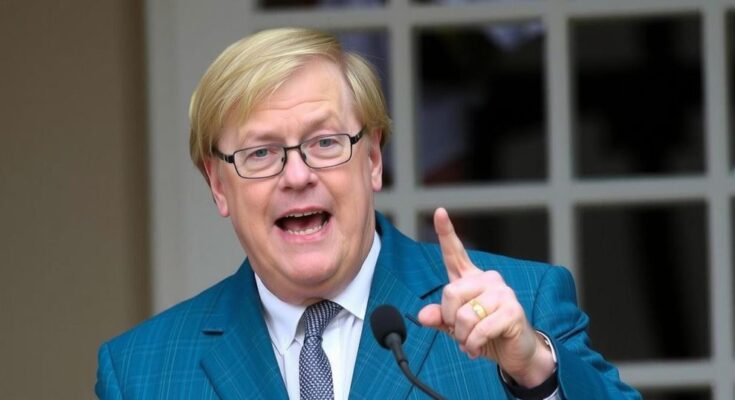German President Frank-Walter Steinmeier has dissolved parliament and scheduled national elections for February 23, 2024, following Chancellor Olaf Scholz’s governing coalition’s collapse. Scholz, who leads a minority government after losing a confidence vote, faces strong opposition from the conservative Union bloc led by Friedrich Merz. Key electoral issues include immigration and economic recovery, with the possibility of protracted coalition negotiations post-election.
On Friday, German President Frank-Walter Steinmeier announced the dissolution of parliament, scheduling national elections for February 23, 2024. This decision follows the collapse of Chancellor Olaf Scholz’s governing coalition, which disintegrated on November 6, when Scholz dismissed his finance minister amid disputes regarding strategies to rejuvenate Germany’s sluggish economy. In light of Scholz’s subsequent confidence vote loss on December 16, the major parties reached a consensus to expedite the election, occurring seven months earlier than initially projected.
Under Germany’s post-World War II constitutional framework, the Bundestag cannot dissolve itself, necessitating the President’s intervention. Following parliament’s dissolution, elections must occur within a 60-day window. Although formal campaigning has only just begun, current polling indicates that Scholz’s party is trailing behind the conservative opposition Union bloc, led by Friedrich Merz. Furthermore, Vice Chancellor Robert Habeck from the Green Party is also vying for leadership, despite his party being less favored in the polls.
Key electoral issues include immigration, economic revitalization, and support for Ukraine amid its ongoing conflict with Russia. The populist Alternative for Germany (AfD) party, which is gaining traction in the polls, has nominated Alice Weidel as its chancellor candidate. However, due to widespread opposition from other parties, the AfD is unlikely to gain any government position. Germany’s electoral history indicates coalition governments, with no single party anticipated to secure an outright majority, suggesting protracted post-election coalition negotiations will follow.
The dissolution of the Bundestag and the call for elections mark a significant development within Germany’s political landscape, particularly following the recent turbulence and internal discord within the ruling coalition. The German political system traditionally relies on coalition alliances due to the multiparty dynamic, and the current political climate is characterized by rising polarization over key issues such as immigration and economic policy. Steinmeier’s decision to set an election date illustrates the delicate balance of power in German politics, where coalition stability is imperative yet often challenging to maintain.
In summary, the dissolution of the German parliament by President Steinmeier and the scheduled elections for February 23 reflect significant shifts in the political landscape following the collapse of Chancellor Scholz’s coalition. With pressing issues such as immigration and economic revitalization at stake, the upcoming elections are poised to realign political power in Germany. The fragmented party dynamics may lead to lengthy negotiations to establish a new governing coalition.
Original Source: jakartaglobe.id




